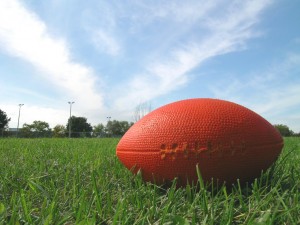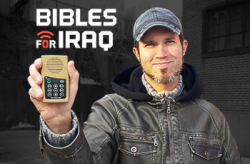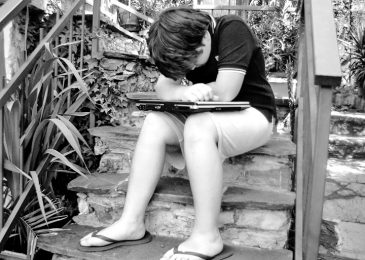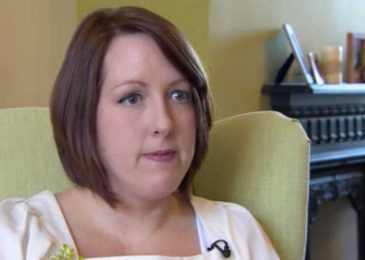 TAMPA, Fla. — The Florida High School Athletic Association (FHSAA) has asked a federal judge to dismiss a lawsuit filed by a school that was banned from presenting a prayer over the loudspeaker prior to a game between two Christian high schools.
TAMPA, Fla. — The Florida High School Athletic Association (FHSAA) has asked a federal judge to dismiss a lawsuit filed by a school that was banned from presenting a prayer over the loudspeaker prior to a game between two Christian high schools.
“FHSAA was … upholding its obligations under the First Amendment’s Establishment Clause in not allowing what would amount to a state-sponsored prayer at a state-sponsored championship football game,” attorneys for the Association wrote this week.
The motion asserted that no wrong had been committed since the school was still able to pray—just without the loudspeaker.
“Cambridge Christian was not denied the opportunity for prayer—in fact, Cambridge Christian acknowledges that it was allowed to offer a pre-game prayer, which it did so, publicly, from mid-field,” it said. “FHSAA did not infringe on Cambridge Christian’s right to exercise its religious freedom and free speech rights.”
“FHSAA also has not banned the school’s athletes and supporters from saying anything they wish to anyone they speak with, or from displaying any signage they wish to bring with them. But the law does not require—and for good and valid reason does not permit—the FHSAA to promote sectarian prayer through state-run public address systems,” the Association asserted.
As previously reported, Cambridge Christian School has a practice of praying over the loudspeaker at every game, and intended to continue its tradition when it earned a spot at the Class 2A Florida state football championship. As its opponent, University Christian School, was also a Christian institution, the two decided to lead attendees in joint prayer at the game.
Since the championship—held last December at Camping World Stadium—was in a large venue, the schools requested permission to use the loudspeaker so the prayer could be heard. But the request was denied due to the Association’s belief that the allowance would be illegal.
“Although both schools are private and religious-affiliated institutions, the federal law addresses two pertinent issues that prevent us from granting your request,” wrote Executive Director Roger Dearing. “First is the fact that the facility is a public facility, predominantly paid for with public tax dollars, makes the facility ‘off limits’ under federal guidelines and precedent court cases.”
“Second is the fact that in Florida Statutes, the FHSAA (host and coordinator of the event) is legally a ‘state actor’ we cannot legally permit or grant permission for such an activity,” he said.
Therefore, the schools did not use the loudspeaker at the championship game, but rather only prayed together at the 50-yard line. Other messages that were secular in nature were allowed to be broadcast.
“Because of the size of the stadium, the students, parents, and other Cambridge Christian and University Christian supporters in the stands could not hear the teams’ midfield pre-game prayer,” Cambridge’s legal complaint outlined. “Thus, by denying access to the loudspeaker, the FHSAA denied the students, parents, and fans in attendance the right to participate in the players’ prayer or to otherwise come together in prayer as one Christian community.”
Following the game, the Association issued a press release advising that any future requests to use the loudspeaker would be denied.
In September, Cambridge Christian School filed suit.
“The FHSAA’s denial of Cambridge Christian’s request for prayer over the loudspeaker, while allowing for secular messages to be delivered over the loudspeaker and other stadium communications media, constitutes content-based and viewpoint-based discrimination in contravention of the First Amendment of the United States Constitution,” it asserted.
The school is seeking judicial intervention to regain the right to pray over the loudspeaker at future championship events.
A special message from the publisher…
 Dear Reader, our hearts are deeply grieved by the ongoing devastation in Iraq, and through this we have been compelled to take a stand at the gates of hell against the enemy who came to kill and destroy. Bibles for Iraq is a project to put Arabic and Kurdish audio Bibles into the hands of Iraqi and Syrian refugees—many of whom are illiterate and who have never heard the gospel.Will you stand with us and make a donation today to this important effort? Please click here to send a Bible to a refugee >>
Dear Reader, our hearts are deeply grieved by the ongoing devastation in Iraq, and through this we have been compelled to take a stand at the gates of hell against the enemy who came to kill and destroy. Bibles for Iraq is a project to put Arabic and Kurdish audio Bibles into the hands of Iraqi and Syrian refugees—many of whom are illiterate and who have never heard the gospel.Will you stand with us and make a donation today to this important effort? Please click here to send a Bible to a refugee >>






